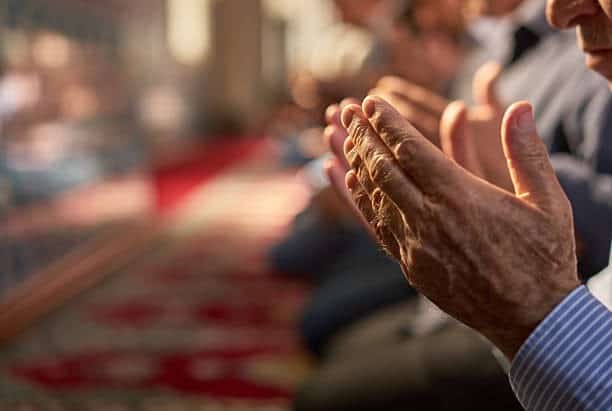Position. Power. Pride. There are all words that come to mind when one thinks of leadership. In our society, we have a set of standards already held in place when it comes to our world leaders. But do these standards hold up to Islam? What standards have Allah put in place for Muslims when it comes to deciding who our leaders should be? By analysing the leaders of the past in the Prophet Muhammad (PBUH)’s time, we can begin to answer these questions and understand the importance of choosing good leaders.
Firstly, let us delve into what leadership looks like in the West. How do we in the UK elect our Prime Minister? Initially, there have to be candidates from different parties who campaign for a while, convincing everyone they are the best and most suitable to be in charge of an entire country. Already we can see a fundamental flaw in this system – it is driven by a greed for power, where people have this desperate desire to keep climbing towards the very top and have a total monopoly over the country. In contrast, the Shariah dictates that only those with quality can become leaders in Islam; being a leader comes with many responsibilities and the utmost accountability. It is for this reason that Muslims do not seek positions of power because it is something that Allah will ask them about on the Day of Judgement. Rather, their Taqwa is such that they do not desire this position, but are aware that if they do not step up and take the position, the community may fall into the wrong hands. These are the standards and requirements of a true Islamic leader.
However, what are the qualities required of our leaders? Perhaps we are already leaders within our community, or the path to leadership is written in our futures. Then it is important to know who we can take as examples and role models and what behaviours to emulate. Allah summarises whom we can look up to in the last ayah of Surah Fatiha as we ask Allah to keep us on the straight path, the same “path of those whom You (Allah) have favoured.”
We know from the ayah that Allah has favoured four groups of people: The Nabee, the Sidiqueen, the Shaheed, and the Salih. As there are and will be no more Nabee (prophets), the Sidiqueen have the highest status and are the leaders whom we should be looking up to. But why has Allah favoured them above the shaheed and salih? Let us begin by understanding the difference between fulfilling Allah’s rights and actually working for Allah. Fulfilling Allah’s rights is doing what Allah has asked of us, this is where the salih and shaheed fall into – it is Allah’s right that we serve and obey Him, and even die for His sake. However, what the Nabee and Sidiqueen have done and still do to, to this day, is actually work for Allah. Allah is the one who guides both individuals and society and gives victory to His deen, and He does this through the prophets who came with the guidance and the sidiqueen who kept that guidance going. These people who do Allah’s work are the best of people.
One example we can look at is Abu Bakr As Siddiq (RA). He was someone who had an absolute restlessness when it came to Islam. His imaan and submission was such that he immediately believed everything as soon as it came. When the Prophet Muhammad (PBUH) claimed to have travelled from Mecca to Jerusalem and back in one night, the people of the Quraysh ridiculed him and accused him of lying as that journey was not possible at the time. However, when they told Abu Bakr (RA) about the incident, the first thing he asked was: “Did the Prophet Muhammad (PBUH) say this?”. When they replied with “yes”, Abu Bakr (RA) immediately proclaimed that he believed what the Prophet (PBUH) said. Such was the belief and trust Abu Bakr (RA) had in Allah and His Prophet (PBUH) – he had an unwavering firm and internal conviction that helped him persevere when the tide was against him as the first Khalifah. When the people began to fall back after the Prophet (PBUH)’s death and stopped giving their zakat, it was the main thing that Abu Bakr (RA) kept going and was uncompromising in his effort.
From both Abu Bakr (RA)’s life and the life of the Sahabah, we can see that the sacrifice of the siddiqueen increases as you elevate up the ranks. The sahabah who were the closest to the Prophet Muhammad (PBUH) were the ones who sacrificed the most. Abu Bakr (RA) would donate all his wealth to charity, leaving his wife and children with almost nothing. Nusaybah (RA) sacrificed her son and husband on the battlefield in the battle of Uhud, only concerned about the Prophet Muhammad (PBUH)’s health. The reason for this is so that their hearts do not become hardened with desire for that position, but to remember Allah and maintain their accountability.
To summarise, there are two main ingredients that make a good Islamic leader and working towards the title of siddiq: perfect integrity and true leadership. Perfect integrity entails having truthfulness to Allah and having an unwavering conviction in Allah’s words and in His Messenger (PBUH). True leadership then entails taking responsibility, having the courage and resolve to continue even when the tide is against you, and to sacrifice above and anyone else in the community.
May Allah grant us the ability to do His work and attain His pleasure. Ameen.




